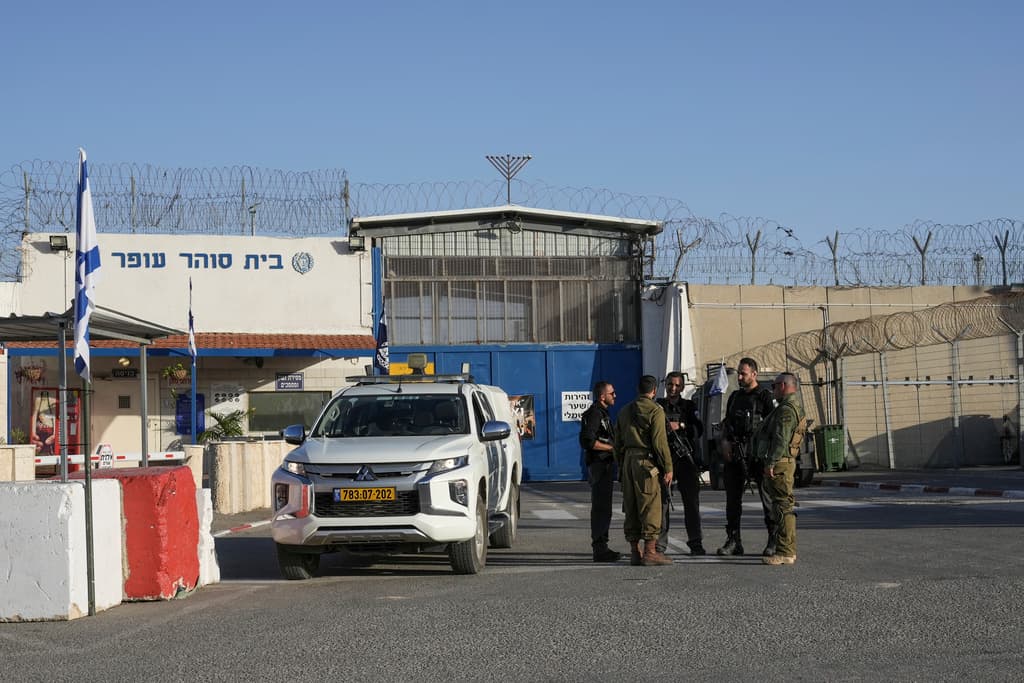Children who are forced to undress naked and are told that their parents do not want to meet them. Abuse and harassment of a sexual nature. Bruises, shock, and weight loss. Save the Children has interviewed 51 children who were arrested on the West Bank and held captive by Israel after Hamas' terrorist attack on October 7, which led to the war in Gaza.
The testimonies suggest that the situation has deteriorated significantly since then.
Johan Schaar, Middle East expert and former aid chief at the Swedish Consulate General in Jerusalem, believes that the treatment of Palestinian prisoners began to deteriorate with the current Israeli government's takeover – but that the trend has strengthened since October 7.
He believes that many within Israeli authorities and politically responsible individuals see a tough attitude towards prisoners as a revenge that can be exacted for Palestinian terrorist crimes. This includes, for example, Security Minister Itamar Ben-Gvir, responsible for, among other things, the police and prison authorities.
He is one of the most extreme ministers in the government. He has actively worked to worsen the conditions for Palestinian prisoners and has publicly stated it as a goal, says Schaar.
No contact
Firas and Qusay, both 17 years old from the West Bank, were in Israeli prisons before the war started and were released at the end of last year.
"The terror we lived with (after October 7) made prison life before the war feel like heaven," says Firas in the report.
The number of children increased after the outbreak of war, some as young as 12 years old, according to Firas and Qusay. Many have no contact with relatives who in some cases do not know where the children are.
"The younger children were very scared and cried all the time," says Qusay.
More severe symptoms
Child psychologists on site warn that the children who have been released are having an increasingly difficult time recovering and that their symptoms are more intense than before. They live with feelings of guilt for friends who have not been released and with fear of being arrested again.
Save the Children's Secretary-General Åsa Regnér points out to TT that it is important not to forget the West Bank, as the situation for both adults and children has deteriorated there as well.
Since October, it is estimated that 650 children from the West Bank and an unknown number of children from Gaza have been imprisoned. Currently, an estimated 250 children are being held captive. The most common charge is stone-throwing, which can result in 20 years in prison.
Since 1967, Israel has had two separate legal systems on the occupied West Bank: a civil and criminal system for Israeli settlers and military law for Palestinians.
Israel is the only country in the world that systematically prosecutes children in military courts, which violates the Convention on the Rights of the Child. According to Israel's military legislation, children from the age of 12 can be imprisoned.
The arrested children often confess to crimes after verbal abuse, threats, and physical and psychological violence, which in some cases can be likened to torture.
Israeli military law does not provide the right to legal counsel during interrogations, and military courts rarely exclude confessions made under duress or torture.
Many trials are held in Hebrew, and children may be forced to sign Hebrew documents they do not understand.
Administrative detention is used against children as well as adult Palestinians and is a form of imprisonment without trial or charge. Therefore, there are no legal opportunities to question the detention. It is decided for up to six months at a time and can be renewed indefinitely.
In April, approximately one in three Palestinian child prisoners were held under administrative detention, according to the prison authority Shabas (IPS).
On July 19, the International Court of Justice (ICJ) in The Hague declared Israel's occupation of the Palestinian territories illegal, which, according to Save the Children, challenges the legal status of Israel's policy and military internment.
Source: Save the Children, Defense for Children International Palestine






